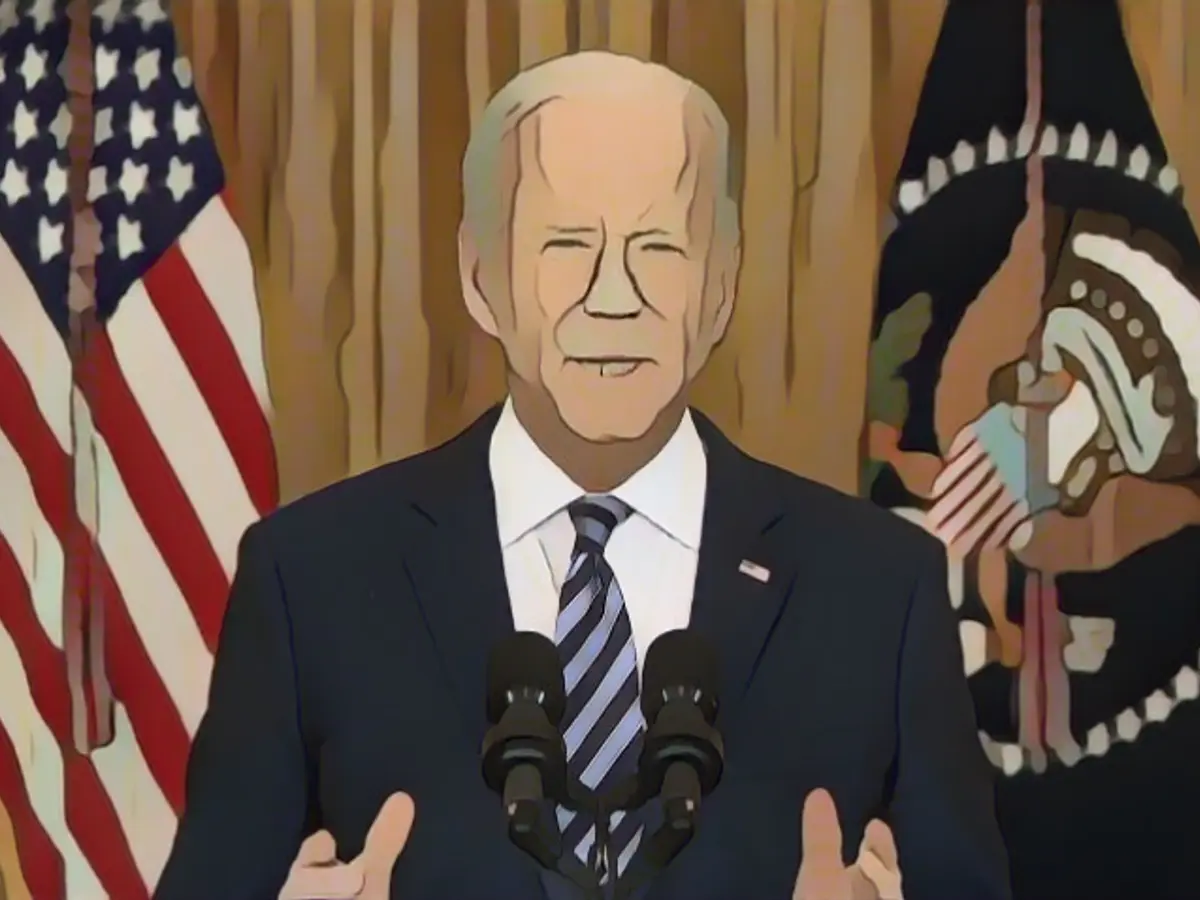Biden's Ukraine Predicament Amidst Crisis
Russia's wide-ranging assault on Ukraine, at a time when Biden was battling rising inflation, volatile stock markets, and low approval ratings at home, presents a significant challenge, both politically and domestically.
Biden's options are limited. He's working with US allies to exert economic pressure on Putin and his inner circle, and announced additional sanctions during a press conference on Thursday. "Putin chose this war, and now he and his country will face the consequences," the President declared. Biden also reiterated his commitment to NATO and its principle of collective defense, stating that the US would "defend every inch of NATO territory."
However, Biden's hands are tied. The President has repeatedly stated that he has no intention of sending US troops to Ukraine. Putin has issued a stern warning against any intervention, and with Russia's substantial nuclear arsenal, any direct confrontation could quickly escalate to extremely dangerous terrain.
In the coming weeks, Americans are likely to bear witness to harrowing images of human-made destruction in Ukraine. Biden himself has admitted that sanctions take time to take effect and may only yield limited results. As the conflict drags on, the President will undoubtedly face mounting criticism for his handling of the situation.
Given the politically charged atmosphere, one should expect the Republican attacks on Biden to intensify in the run-up to the midterm elections.
Despite the pressure, Biden must avoid making decisions from a political standpoint and continue to focus on imposing punitive measures and isolating Russia, rather than escalating the situation into a full-blown military conflict.
Americans are grappling with significant concerns about their country's state. The pandemic has exacerbated deep political divisions and highlighted our vulnerability to a deadly virus. Soaring prices have fueled economic anxiety, and the Ukraine conflict could lead to higher gas prices – something Biden promised to tackle with "all the resources at our disposal."
Worldwide, the persistent growth of authoritarian regimes poses a challenge for democratic forces in the region.
The current crisis brings to mind the foreign policy collapse faced by President Jimmy Carter in 1979. Armed with the advice of his National Security Advisor, Zbigniew Brzezinski, Carter authorized aid for Mujahideen guerrillas in Afghanistan.
When Carter learned of the Soviet invasion in Afghanistan in December 1979, he was already grappling with a weak economy, an oil crisis, and the Iran hostage crisis. Carter was surprised that the Soviet Union had launched an invasion since he knew that doing so would effectively end any possibility of sustained detente.
Carter responded by delaying further Senate discussions on the Strategic Arms Limitation Talks (SALT II) agreement in January 1980. Weeks later, he outlined the "Carter Doctrine" in his State of the Union address, promising to "be prepared for any challenge to our security in the Persian Gulf." He also announced that the US would boycott the Moscow Olympics.
However, as the conflict in Afghanistan unfolded, Carter was increasingly seen as incompetent and weak by the public. The Republicans began labeling him a failed President, blaming him for failing to protect national security.
One of Reagan's campaign ads showed images of suffering children with an off-screen voice saying, "Step by step, slowly, hope for world peace faded. Slowly, we slid back towards Korea – slowly towards Vietnam. .Now it's the Persian Gulf." As a close-up of Carter's face filled the screen, the off-screen voice continued, "Jimmy Carter's weak, uncertain leadership was shaken by events in Angola, Ethiopia, and Afghanistan. Jimmy Carter still doesn't understand that strong leadership is needed." Preserve peace. A weak leadership loses it."
During the final presidential debate in 1980, the Republican candidate, Ronald Reagan, asked, "Is America as respected around the world now as it was four years ago? Do you think we're as powerful as we were before?"
In November 1980, the voters handed the presidency to Reagan, marking the beginning of an era of conservative politics that transformed the nation.
For Biden, the political consequences of Ukraine could represent a serious threat. If the Russian attacks on Ukraine continue for months and the humanitarian crisis is as severe as some predict, Biden's inability to take stronger action could become a significant issue in the midterm elections and potentially the 2024 presidential race.
It was only a matter of time before the Republicans began reminding the public that Russia invaded Ukraine twice in the past decade while Democrats were in power in the White House.
Ultimately, the Ukrainian crisis should not dictate Biden's political decisions or push the US into a long, costly war. If the pursuit of peace and stability in the world requires sacrificing his own political future, Biden should be prepared to make that compromise.
At least for now, Biden can take comfort in the fact that unemployment remains low. The possibility of a pandemic could give Biden and the Democrats a significant boost in the coming months. So far, there appears to be little interest in a US military intervention in Ukraine.
Sign up for our free, weekly newsletter
Subscribe to CNN Opinion's newsletter.
Follow us on Twitter and Facebook
Read also:
Biden has not faced the same level of criticism for his perceived inefficiency as Carter. Reagan criticized Carter for his soft approach to Afghanistan, while former President Donald Trump, who has effectively led the Republican Party, continued to praise Putin and called his Ukraine strategy "genius."
Biden promised at his inauguration to revive US international alliances, which were damaged during the Trump administration. Now is the time to leverage these alliances to apply pressure on Putin and encourage him to change course.
Effective presidential leadership under these challenging circumstances requires a thoughtful, evidence-based policy approach, rather than the bombast that often arises in times like these.
: "Joe Biden’s unpopularity in America: A reality check," CNN, January 2022.
: "Russia-Ukraine crisis: Biden receives flak from Republicans for stance," CNN, March 2022.
: "Joe Biden’s Approval Rating: The Ups and Downs," CNN, October 2022.
: "Russia-Ukraine crisis: What Biden's strategy could mean long term," CNN, March 2022.
Read also:
Biden's handling of the Ukraine crisis could face increased scrutiny from Republicans. If the Russian attacks on Ukraine last for months and result in severe humanitarian consequences, Biden's inability to take stronger action could become a major issue during the midterm elections and potentially the 2024 presidential race. Republicans are already beginning to remind the public of Russia's past invasions of Ukraine while the Democrats were in power in the White House.
Ultimately, Biden must strike a balance between his domestic and international responsibilities, focusing







